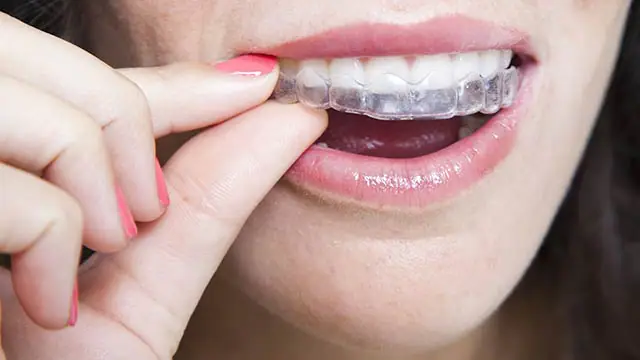The Role of Mouthguards in Managing Bruxism: A Comprehensive Guide
Bruxism, a condition characterized by involuntary teeth grinding and clenching, affects millions of people worldwide, causing tooth wear and tear, jaw pain, and headaches. If you’re experiencing symptoms of bruxism, it’s essential to consult a dentist in Artesia, CA, who can recommend the best course of treatment. One of the most effective ways to manage bruxism is by using a mouthguard, a dental appliance that protects the teeth and jaws from the damaging effects of teeth grinding and clenching.
In this article, we will explore the role of mouthguards in managing bruxism, including their benefits, types, and how to choose the right one.
What Are Mouthguards?
Mouthguards, also known as occlusal guards, are dental appliances designed to protect the teeth and jaws from the damaging effects of bruxism. They are typically made of plastic or rubber and are worn over the teeth, usually at night, to prevent teeth grinding and clenching.
Types of Mouthguards
There are several types of mouthguards available, including:
- Stock Mouthguards: Pre-made mouthguards that are available over the counter.
- Custom-Fitted Mouthguards: Made-to-measure mouthguards that are custom-fitted to an individual’s teeth.
- Boil-and-Bite Mouthguards: Mouthguards that are boiled and then bitten into to create a custom fit.
- Hard Mouthguards: Rigid mouthguards that are made of hard plastic or acrylic.
- Soft Mouthguards: Flexible mouthguards that are made of soft plastic or rubber.
What Are The Benefits of Mouthguards in Managing Bruxism?
Mouthguards offer several benefits in managing bruxism, including:
- Tooth Protection: Mouthguards protect the teeth from the damaging effects of teeth grinding and clenching, reducing the risk of tooth wear and tear.
- Jaw Pain Relief: Mouthguards can help to reduce jaw pain and tension caused by bruxism.
- Headache Relief: By reducing jaw pain and tension, mouthguards can also help to alleviate headaches caused by bruxism.
- Improved Sleep: Mouthguards can help to improve sleep quality by reducing the frequency and severity of teeth grinding and clenching.
- Cost-Effective: Mouthguards are a cost-effective solution for managing bruxism, especially when compared to the cost of repairing or replacing damaged teeth.
How to Choose the Right Mouthguard?
Choosing the right mouthguard can be overwhelming, especially with the numerous options available. Here are some tips to help you choose the right mouthguard:
- Consult a Dentist: Consult a dentist to determine the best type of mouthguard for your specific needs.
- Consider Your Budget: Determine how much you are willing to spend on a mouthguard.
- Think About Your Comfort Level: Choose a mouthguard that is comfortable to wear and doesn’t interfere with your sleep or daily activities.
- Look for a Mouthguard that is Easy to Clean: Choose a mouthguard that is easy to clean and maintain.
How to Care for Your Mouthguard?
To ensure that your mouthguard lasts for a long time, it’s essential to care for it properly. Here are some tips on how to care for your mouthguard:
- Clean Your Mouthguard Regularly: Clean your mouthguard with soap and water, and rinse it thoroughly.
- Store Your Mouthguard Properly: Store your mouthguard in a protective case to prevent damage.
- Avoid Exposure to Extreme Temperatures: Avoid exposing your mouthguard to extreme temperatures, such as leaving it in a hot car.
- Replace Your Mouthguard Regularly: Replace your mouthguard regularly, usually every 2-5 years, or as recommended by your dentist.
Takeaway
Bruxism is a common condition that can have serious consequences if left untreated. Mouthguards are a simple and effective way to manage bruxism, offering numerous benefits, including tooth protection, jaw pain relief, and improved sleep. By choosing the right mouthguard and caring for it properly, you can effectively manage bruxism and reduce the risk of complications. If you suspect that you have bruxism, consult a dentist to determine the best course of treatment.
